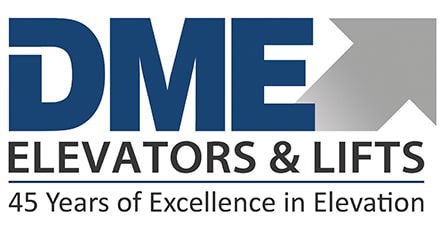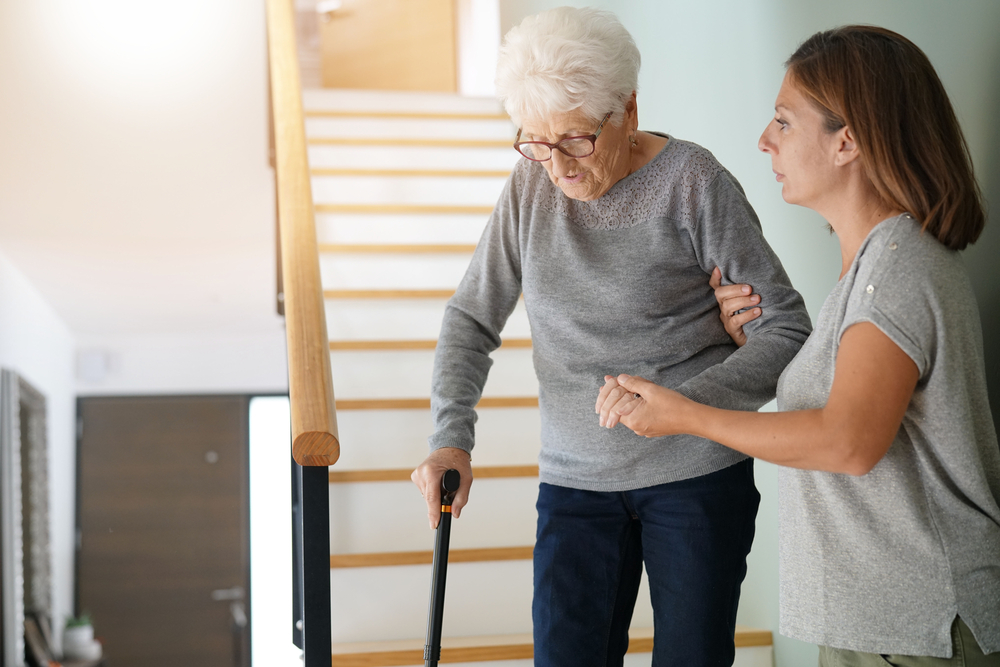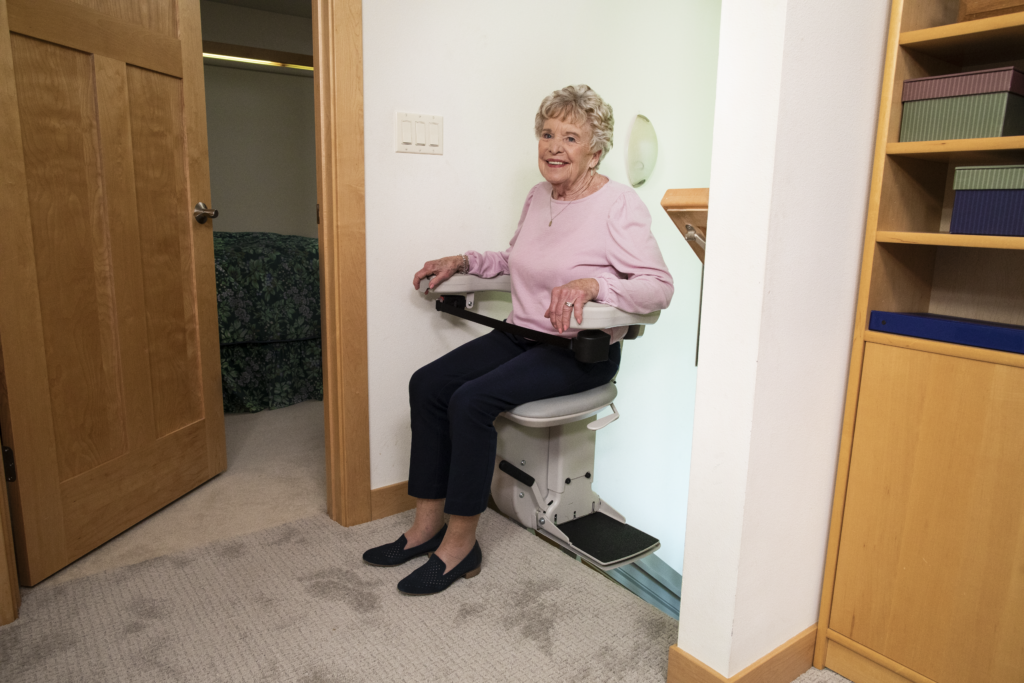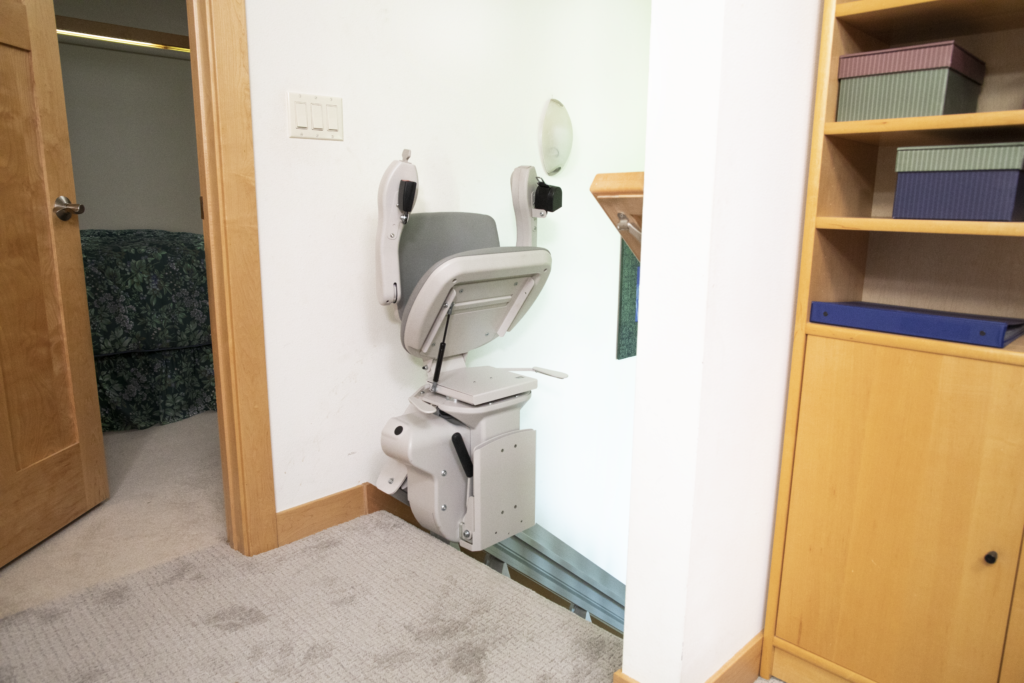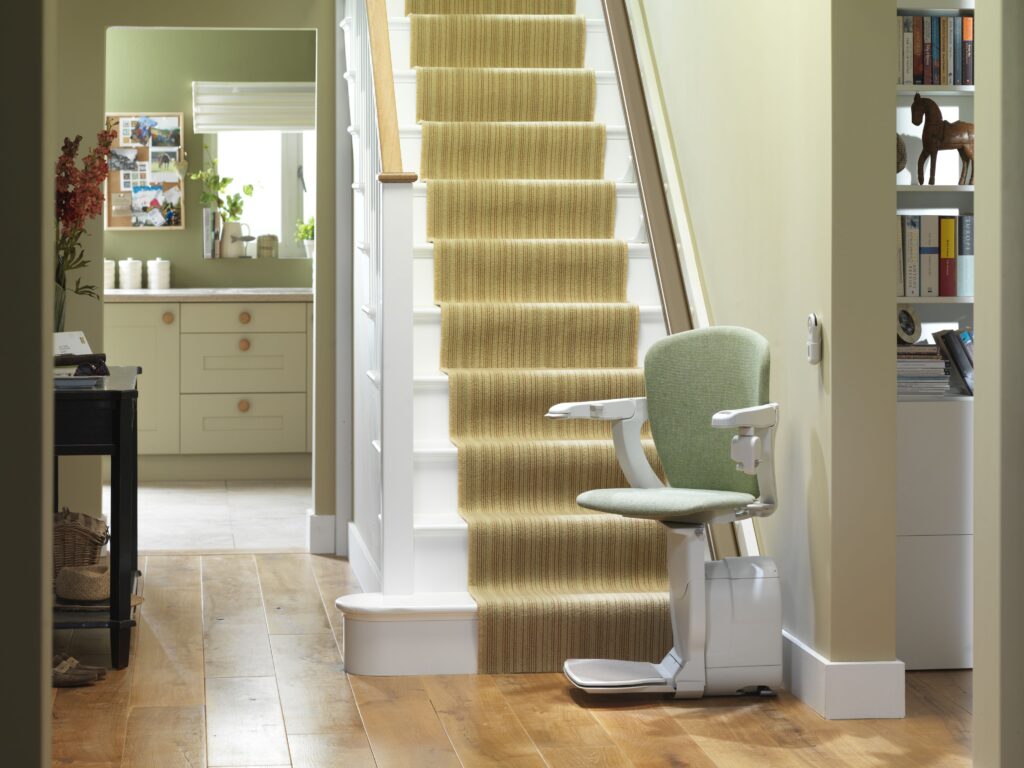Aging is a natural process that we all go through, and watching a loved one age can be a bittersweet experience. It can come with its own set of challenges for your elderly loved one, including a loss of mobility and a growing difficulty with day-to-day tasks. One of these tasks can be navigating up and down the stairs in your home. While many of us climb the stairs without a second thought, for an elderly person this can feel like a daunting task. Using the stairs comes with a risk of falls and serious injuries for your loved one, so it is important to figure out a safe method of traversing the stairs.
Want to help your elderly loved one navigate the stairs but you are not sure where to begin? Do not worry, we are here to help you! This discussion will go over the basic steps for how to safely help an elderly individual navigate up and down the stairs, including assessing the situation, using the proper techniques to protect them and yourself, investing in different assistive devices for your home’s stairs, and using basic safety tips and precautions to keep everyone safe.
Assessing the Situation
One of the first things that you should be doing as a caregiver for your elderly loved one is assessing the current situation to identify potential risks and hazards. This can include the current state of your staircase and the state of the rest of your home. Look for potential hazards on your staircase that can increase the risk of falls, including clutter or a wobbly handrail. Try to address these issues if you can, as this can help keep your elderly loved one safe as they traverse the stairs.
When we say to assess the situation, this is not limited to just the physical space surrounding your stairs. This also includes taking your loved one’s health into account. Try to determine what their current physical capabilities are and how much help they will need. It is also important to be on top of the medications that they take, as many have side effects that can impact their level of safe mobility. They may be able to stand on their own, but if they are on medication that makes them dizzy and unstable on their feet, then that puts them at an increased risk of falling on the stairs.
Their current physical capabilities will not only determine how much help they will need navigating the stairs but also whether you can safely provide them with the help they will need on your own. It is important to keep you and your loved one safe, and there is nothing wrong with needing extra help.
Assistive Devices for Stairs
If your loved one needs additional help on the stairs, there are a few different stair aids for elderly loved ones that you can try. These vary depending on your loved one’s general mobility skills. One of the first things you can do is ensure that your handrails are secure and that you have a set on either side of your stairs. You can also invest in stair treads or half steps to prevent slips and help your loved one make it safely up the stairs if they struggle to get their foot up and over a full step.
Another option would be to invest in a stairlift chair to transport your loved one safely up and down the stairs. Depending on the style and shape of your stairs, there are a few different chairlift options to match your needs. Curved stair lifts allow for the chair to navigate around turns and straight stairlifts are the simplest option that fit many staircases. An advisor will be able to recommend the best option for your home based on the layout as well as your loved one’s needs. While these can be a significant investment, the peace of mind of knowing that everyone in your home can safely navigate the stairs without the risk of a fall is worth it.
Safety Tips and Precautions
In addition to knowing the steps to safely help your loved one navigate the stairs, there are also a few safety tips and precautions that you can practice daily to help keep your elderly loved one safe and prevent falls. Firstly, be sure to perform routine maintenance on any mobility aids that your loved one uses to make sure that everything is in working order and there are no issues. In addition, stay on top of health and safety checkups for your loved one, as sometimes a trained medical professional can catch warning signs or hazards that you may not see at first.
Another tip is to be proactive in having a plan in place in the event of an emergency. No one wants to think about the worst-case scenario, but it is important to have these discussions and have a protocol in place. These can include what to do in the event of a serious fall or any serious medical emergency.
Navigate Stairs With Ease with a Stairlift from DME Elevators & Lifts
Aging is a natural part of life, but it does not mean that your loved one has to lose their independence in the process. There are things you can do as a caregiver to give your loved one a sense of independence while keeping them safe and living at home. While the stairs can be tricky for an elderly person, there are solutions to make the process as safe as possible for everyone involved.
Need a lift? DME Elevators & Lifts offers a wide range of chairlift options to fit your loved one’s mobility needs. From straight stairlifts to curved lifts to rentals and used options, we have a solution for you. Fill in the form on this page and an advisor will be in touch with you soon. We are proud to provide chair lifts for residents in Illinois, Wisconsin, and Indiana.
